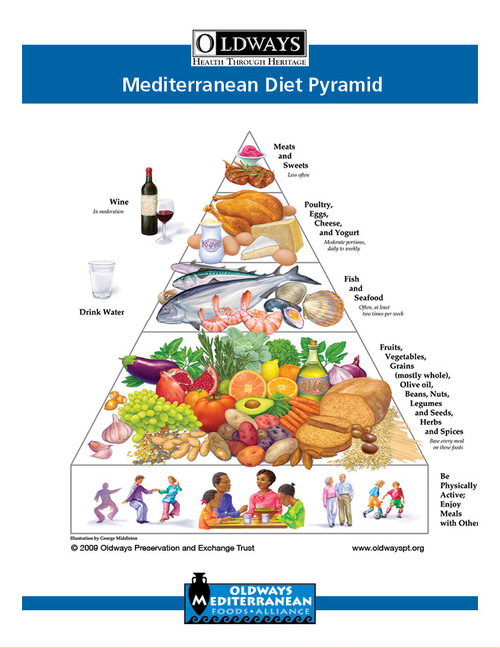Food for thought: Women are different from men. (You knew that, right?)
As reported in ScienceMag.org in 2017, brain scientists determined that males had “high total brain volume” compared to females, even when corrected for males’ larger average body size. Howev er, women had significantly thicker cortices than men, and thicker cortices are associated with high scores on cognitive and general intelligence tests. At the same time, men had high brain volumes in areas of the brain that governs memory, decision-making, learning, and processing information.
er, women had significantly thicker cortices than men, and thicker cortices are associated with high scores on cognitive and general intelligence tests. At the same time, men had high brain volumes in areas of the brain that governs memory, decision-making, learning, and processing information.

Men & Women’s brains – there are differences.
The scientists concluded that size is not a defining factor in intelligence or behavior, and only a few intellectual and behavioral differences, like aggression in men, “have been borne out by scientific research.”
Now a new study to be published in the journal Nutritional Neuroscience explored the gender-specific risk factors that may explain some differences in the human brain. And they make recommendations – specifically what is the best diet to nourish the body — including the mind.
As reported in Nutraingredients.com, scientists surveyed 563 participants (48% men and 52% women) to assess their diet and nutrient consumption. They assessed average servings of nine different food groups (whole grains, fruits, vegetables, meat, beans, nuts, dairy, fish and “high glycemic index foods” which are foods like white bread, white rice, and white potatoes).
They concluded that nutrition may influence brain health more so in women than men, and women may need a more nutrient-rich diet to support a positive emotional well being. They conclude, “These findings may explain the reason why women are twice as likely to be diagnosed with anxiety and depression and suffer from longer episodes compared to men. Today’s diet is high in energy but poor in key nutrients that support brain anatomy and functionality.”
The scientists found that consumption of a “Western-like diet” (rich in red meat, dairy products, processed and artificially sweetened foods, and salt, with minimal intake of fruits, vegetables, fish, legumes, and whole grains) was associated with mental distress in men, while a healthy lifestyle including a balanced diet increased mental wellbeing in women.

Western-type diet – bad for brain health.
Researchers noted that “Individuals with higher Mediterranean diet scores (MDS) tend to have larger frontal, parietal, occipital, and average lobar cortical thickness” especially associated with “beans, (high in polyphenols) and fish (rich in omega-3 fats) are especially associated with increased cortical thickness.
As reported in the Wall Street Journal, “Next month, the World Journal of Psychiatry will publish “Antidepressant Foods: An Evidence-based Nutrient Profiling System for Depression,” by Dr. Drew Ramsey, assistant clinical professor of psychiatry at Columbia University, and Dr. Laura LaChance of the Centre for Addiction and Mental Health in Toronto. It includes a nutrient-profile scale, which identifies the most nutrient-dense foods in relation to “the prevention and treatment of depressive disorders.” The paper names 12 nutrients key to managing depression and anxiety: folate (vitamin B9), iron, long-chain omega-3 fatty acids, magnesium, potassium, selenium, thiamine (vitamin B1), vitamin A, vitamin B6, vitamin B12, vitamin C and zinc. The foods richest in these include bivalves such as clams, mussels and oysters; leafy greens such as kale and spinach; wild salmon; organ meats; nuts; beans and seeds.”
And a new study published in the British Journal of Nutrition suggests that the Mediterranean-type diet can help prolong your life, even if you’re 65 years old – or older. As reported in CNN Health, researchers found that “adherence to the Mediterranean diet is protective against all-cause mortality and also against some cardiovascular outcomes.”
Oldways, a nonprofit food and nutrition education organization with a mission to inspire healthy eating through cultural food traditions and lifestyles, is my go-to source for information and tips for following a Mediterranean-type eating plan. They write, “The Mediterranean Diet (or Med Diet) reflects a way of eating that is traditional in the countries that surround the Mediterranean, but you don’t need to travel any further than your local market to discover its delicious flavors and fresh foods. It’s easy to bring the remarkable health benefits and affordable Mediterranean style of eating to your kitchen cupboards, your refrigerator, your countertops, your stovetop, your oven, and your table every day.

Illustrated by a pyramid, starting at the base of the pyramid, you’ll find an emphasis on activity and social connections.
Moving upward, you’ll see the core foods that you’ll shop for and enjoy every day: whole grains, fruits, vegetables, beans, herbs, spices, nuts and healthy fats such as olive oil. Fish and seafood are typically eaten at least twice a week, and dairy foods – especially fermented dairy like yogurt and traditional cheese – are eaten frequently in moderate portions. Eggs and occasional poultry are also part of the Mediterranean Diet, but red meat and sweets are rarely eaten. Water, and wine (for those who drink) are typical beverages.”
If you prefer not to eat meat, Oldways has resources! They offer, “While the four traditional diets featured in Oldways’ work – Mediterranean, African Heritage, Asian and Latin-American – also include fish and occasional meat, plant foods are at the base of each of our pyramids. We’ve even created a separate Vegetarian / Vegan Diet Pyramid, to inspire people who want to increase their consumption of plant foods.”
Cuenca, Ecuador is the perfect place to enjoy this smart lifestyle. And here’s how! Read my column about adopting a healthy, delicious, and affordable eating plan.
_____________________
Sources:
CNN Health. Mediterranean diet has benefits even in old age, study suggests.
Nutraingredients-usa.com. Nutrition may influence brain health more so in women than men, study suggests.
Oldwayspt.org. Mediterranean Diet.
ScienceMag.org. Study finds some significant differences in brains of men and women.
The Wall Street Journal. Feed your head: foods that target depression and anxiety.






















